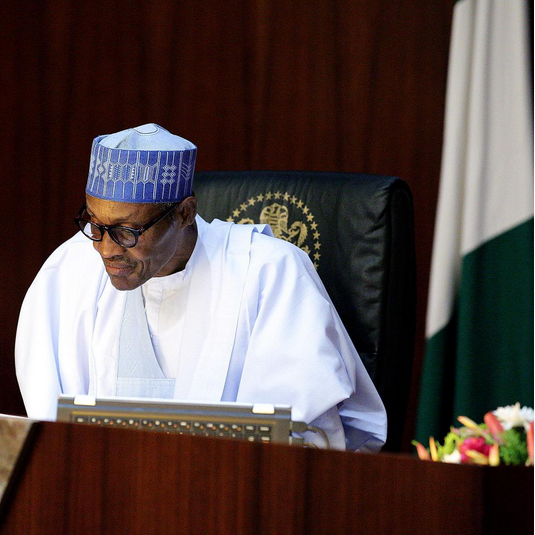President Muhammadu Buhari has revealed that he almost abandoned his presidency because of the level of economic challenges facing the country. The president stated this on Thursday, November 3 when he received the Executive Course 38 participants of the National Institute of Policy and Strategic Studies (NIPSS) Kuru, at the Presidential Villa, Abuja.
According to him, shortly after his inauguration, he felt like running away when he was confronted with the level of the nation’s economic problems inherited by his administration.
The president also lamented that despite unprecedented resources at the disposal of successive administrations since 1999, the nation has nothing to show.
President Buhari said: “For 16 years and eight consecutive governments of the other party, you know that there was unprecedented revenue realised. Oil production which can be verified was 2.1 million barrels per day.”
“Between 1999 and 2015, the average cost of each Nigerian barrel of oil was $100 per barrel. When we came it fell to less than $30 per barrel and is now hovering between $40 and $50.”
“Actually, I felt like absconding because 27 out of 36 states in Nigeria cannot pay salaries and we know they have no other source than to depend on salaries to pay rent and do other things.”
“I asked if there was any savings and I was told there was no savings. I asked what they did on agriculture, power, rails and roads. There was nothing.”
“You know more than I do because you move around. I have not been moving around since after elections but you do. How many of the Trunk A roads are still good enough? How much power do we have although there are some elements of sabotage?”
“I was told the money was used to import food and fuel. I didn’t believe the answer and I still do not believe it. Up till now, a substantial number of people in the East eat garri and groundnut; in the West they eat pounded yam, cassava, vegetables; in the North, they eat tuwo which is made from any of the grains: millet, sorghum. They eat it in the night and warm it in the morning and eat it and take fura in the afternoon. How many of those people can afford foreign food?
“Then they said I should check out the petroleum sector. The legislature dedicated 445,000 barrels per day for internal consumption and that is just 60 per cent of our requirements. I said ‘okay, what of the 40 per cent?’ The marketers that are bringing it just present documents, papers are just stamped and monies are taken away.”
“This is the type of things that the Nigerian elites are doing for our own country. When you go back, look at your colleagues and encourage them to be truly Nigerians.”
Speaking further, President Buhari, who said the current recession in the country is not peculiar to Nigeria, said the sorry state of the nation’s economy was brought about by poor management by past administrations.
“In the last one and half years of this administration, the economy has experienced some tough times, particularly with the decline in oil revenues, which has some harsh impact on Nigerians at the grassroots.”
“It is also important to note that the economic recession is not the making of this administration, but rather a consequence of bad management of the economy in the past couple of decades. Nor is recession limited to Nigeria – there are far, far worse cases than Nigeria,” he added.
On the the poverty reduction research report presented to him by the Course 38 participants of NIPSS, President Buhari said he was impressed by the seriousness they attached to it, promising that the Federal Executive Council would study it and implement practical aspects of the report.


